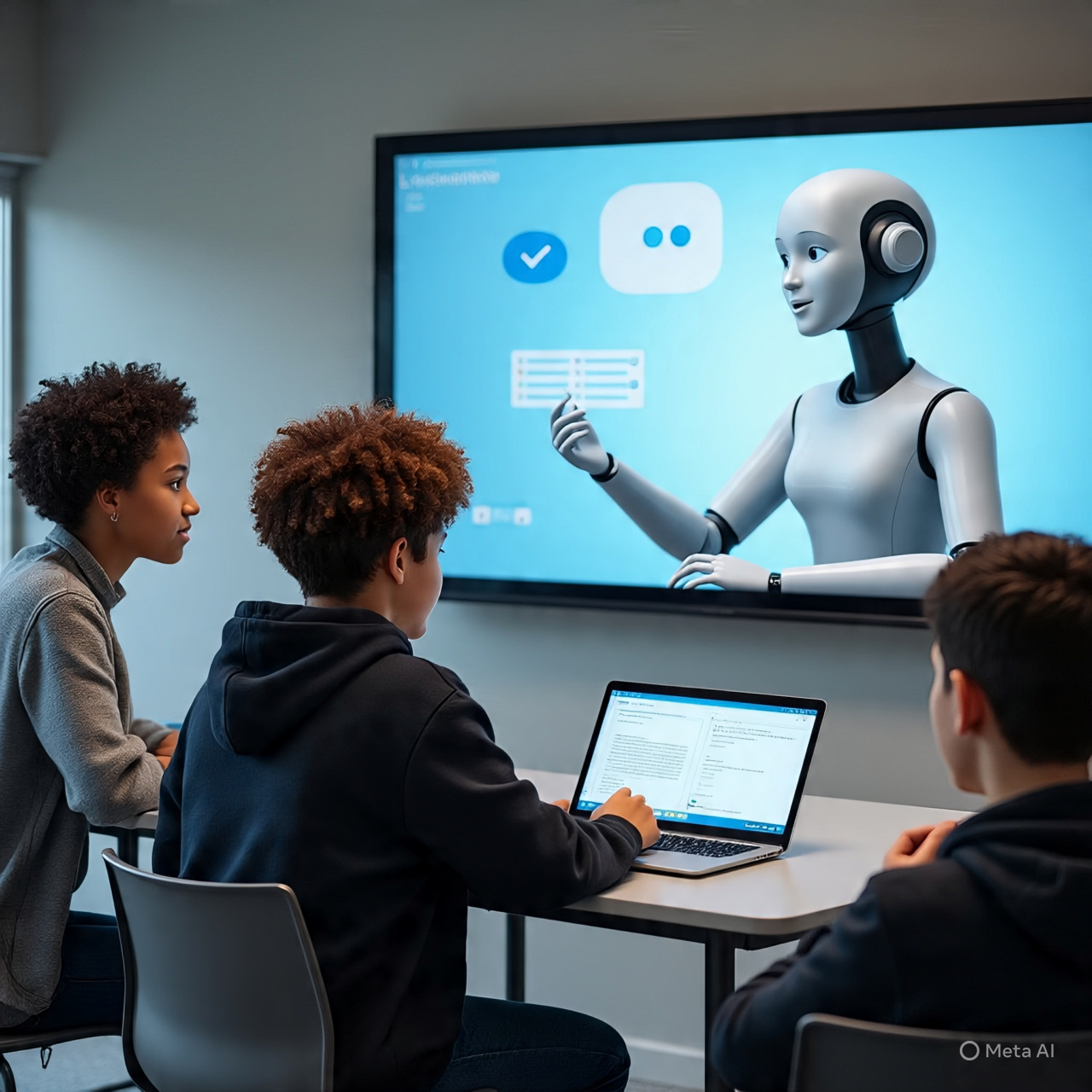
Future-Ready Students: The Role of AI in Education
As we move deeper into the 21st century, the intersection of technology and education has never been more pivotal. Among the most transformative developments in this space is Artificial Intelligence (AI). From personalised learning experiences to intelligent tutoring systems, AI is reshaping how students engage with knowledge, how teachers instruct, and how schools function.
To ensure students are genuinely future-ready, embracing AI within education is no longer optional—it is essential. Give us a call at +91 63632 63634 to learn how The Orbis School is integrating AI and digital tools into modern learning.
Personalised Learning
One of AI’s most powerful contributions to education lies in its ability to create personalised learning pathways. Traditional education often follows a one-size-fits-all model, which can fail to address the varied needs of individual learners—some may fall behind, while others are not sufficiently challenged.
AI disrupts this standard by analysing data on student performance, learning styles, and preferences to tailor content delivery in real time. Adaptive learning platforms powered by AI offer custom quizzes, suggest targeted exercises, and dynamically adjust content difficulty based on each student’s progress. This degree of personalisation helps to improve understanding, motivation, and retention for all learners.
Intelligent Tutoring Systems
AI-powered intelligent tutoring systems are revolutionising supplementary education. These systems mimic human-like interaction, providing students with immediate feedback, detailed explanations, and step-by-step guidance. Unlike traditional tutoring, which may be limited by availability or cost, AI tutors are accessible around the clock and scalable to large numbers of students.
Virtual assistants and educational chatbots can help learners practise languages, solve mathematical problems, or grasp complex scientific theories at their own pace. These tools support independent learning and help students build confidence and curiosity.
Enhancing the Role of Educators
Contrary to concerns that AI will replace teachers, it is better seen as a tool that empowers educators. By automating administrative tasks such as grading, attendance tracking, and report generation, AI allows teachers to focus on student engagement and mentorship.
Additionally, AI analytics can provide valuable insights—identifying students who are struggling, tracking overall class performance, and helping teachers adjust their strategies accordingly. This data-driven approach promotes timely interventions and a more responsive learning environment.
Preparing Students for the AI Era
Beyond transforming how students learn, integrating AI into the curriculum prepares them for a world in which AI is ubiquitous. Future-ready learners must understand not only how to use AI tools but also how these systems work and what ethical considerations come into play.
Educational institutions are beginning to incorporate AI literacy into their curricula—covering topics such as algorithms, data ethics, privacy, and bias. These foundational concepts are essential for numerous career paths, including engineering, medicine, finance, data science, and beyond.
Equitable Access and Ethical Considerations
Despite its immense promise, AI in education presents challenges around equity and access. Not all schools possess the infrastructure or funding to implement advanced AI tools, risking the expansion of the digital divide.
It is therefore crucial that AI solutions are designed to be inclusive and accessible to students from diverse socio-economic backgrounds. Policymakers, educators, and developers must work in unison to ensure AI systems are fair, transparent, and aligned with core educational values.
Conclusion
AI in education represents more than a technological trend—it is a transformational shift towards a more tailored, engaging, and forward-looking approach to learning. By harnessing the potential of AI with care and foresight, we can nurture a generation of students who are not only academically strong but also digitally literate, adaptable, and ethically aware.
As technology continues to evolve, so must education. Ensuring that our learners are prepared for the AI-driven future means giving them the tools and mindset not just to participate in it—but to lead it.
Archives
- Dec 2020 (1)
- Jan 2021 (4)
- Mar 2021 (2)
- Apr 2021 (3)
- May 2021 (3)
- Jun 2021 (1)
- Jul 2021 (2)
- Aug 2021 (3)
- May 2022 (1)
- Aug 2022 (2)
- Sep 2022 (1)
- Oct 2022 (2)
- Apr 2023 (2)
- Jul 2023 (1)
- Aug 2023 (2)
- Sep 2023 (2)
- Dec 2023 (3)
- Jan 2024 (2)
- Feb 2024 (5)
- Mar 2024 (4)
- Apr 2024 (4)
- May 2024 (3)
- Jun 2024 (3)
- Jul 2024 (4)
- Aug 2024 (4)
- Sep 2024 (4)
- Oct 2024 (5)
- Nov 2024 (4)
- Dec 2024 (4)
- Jan 2025 (3)
- Feb 2025 (3)
- Mar 2025 (3)
- Apr 2025 (4)
- May 2025 (3)
- Jun 2025 (4)
- Jul 2025 (4)
- Aug 2025 (3)
- Sep 2025 (4)
- Oct 2025 (3)
- Nov 2025 (4)
- Dec 2025 (3)
- Jan 2026 (4)
- Feb 2026 (3)